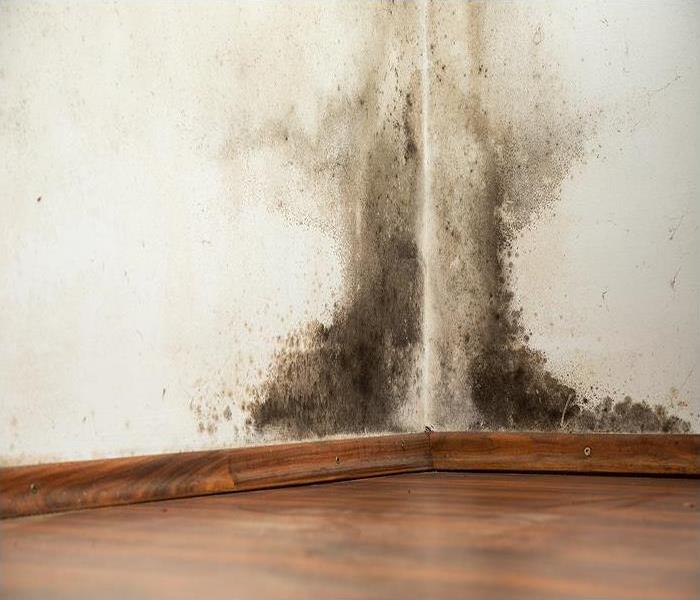Common Places for Mold to Grow
10/20/2017 (Permalink)
When we think of mold problems we equate it to damp basements and black gross mold growing on drywall; but mold is insidious and can grow in places where you least expect it. Mold is fast growing, can pop up within 24 hours of being exposed to moisture, and spreads quickly.
Here are some common places where mold forms that you might not be aware of:
- Under Your Refrigerator
The spaces behind and under your fridge rarely see the light of day, which make them a perfect breeding ground for mold. Clean all water lines and drip pans and ensure they are not leaking; even a small leak can lead to a huge mold problem. Take the extra time to check and clean behind and underneath your refrigerator.
- Chimneys
Your chimney can easily become a breeding ground for mold. Brick crevices collect water, dirt, and other organic debris. Rusted chimney caps and faulty flashing let in rain and snow, encouraging mold to grow. Replace rusted caps and fix flashing. Call a licensed mold removal specialist to remove the mold in your chimneys. To prevent mold, get your chimney cleaned by a professional chimney sweep at least once a year.
- Front-Loading Washing Machines
Front-loading washing machines are great, but can be a hotspot for mold growth. The gasket around the door on front-loading washing machines often stays wet because the door is usually closed when not in use. Add some lint to the moisture and mold happily munches and multiplies. Wipe the gasket and glass dry before you shut the door. If you spot mold, run a hot water wash with some chlorine bleach (no clothes), which will kill the fungi. Even if you have a top-load washer make sure to regularly check behind and underneath your washer and dryer to make sure there are no leaks or source of moisture. Clean out vents and lint traps to prevent mold havens, as well as fire hazards.
- Window Sashes and Seals
Condensation from windows provides the moisture mold loves, and the dirt and dust that collect provide the perfect place for the mold to settle. After heavy rains open windows and wipe moisture from the bottoms of sashes and windowsills. Replace any broken seals and if you notice any water has leaked into the wood and walls call a professional to see if the problem has caused mold.
- Air Conditioners
Air conditioning units trap dust and pollen (a good meal for mold) and grab moisture from the air. If you don’t run your AC unit at least every 24 hours in warm weather humidity in your house climbs, giving mold the opportunity to grow in AC ducts, drain pans, and on coils. Drip pans and drainage hoses on window units can leak causing mold to grow into the windowsill and dry wall. If mold grows in your central air conditioning unit you’ll have to hire a mold remediation pro to clean out the system.
If you suspect you may have mold contact the experts at SERVPRO of Southwest Brooklyn





 24/7 Emergency Service
24/7 Emergency Service
